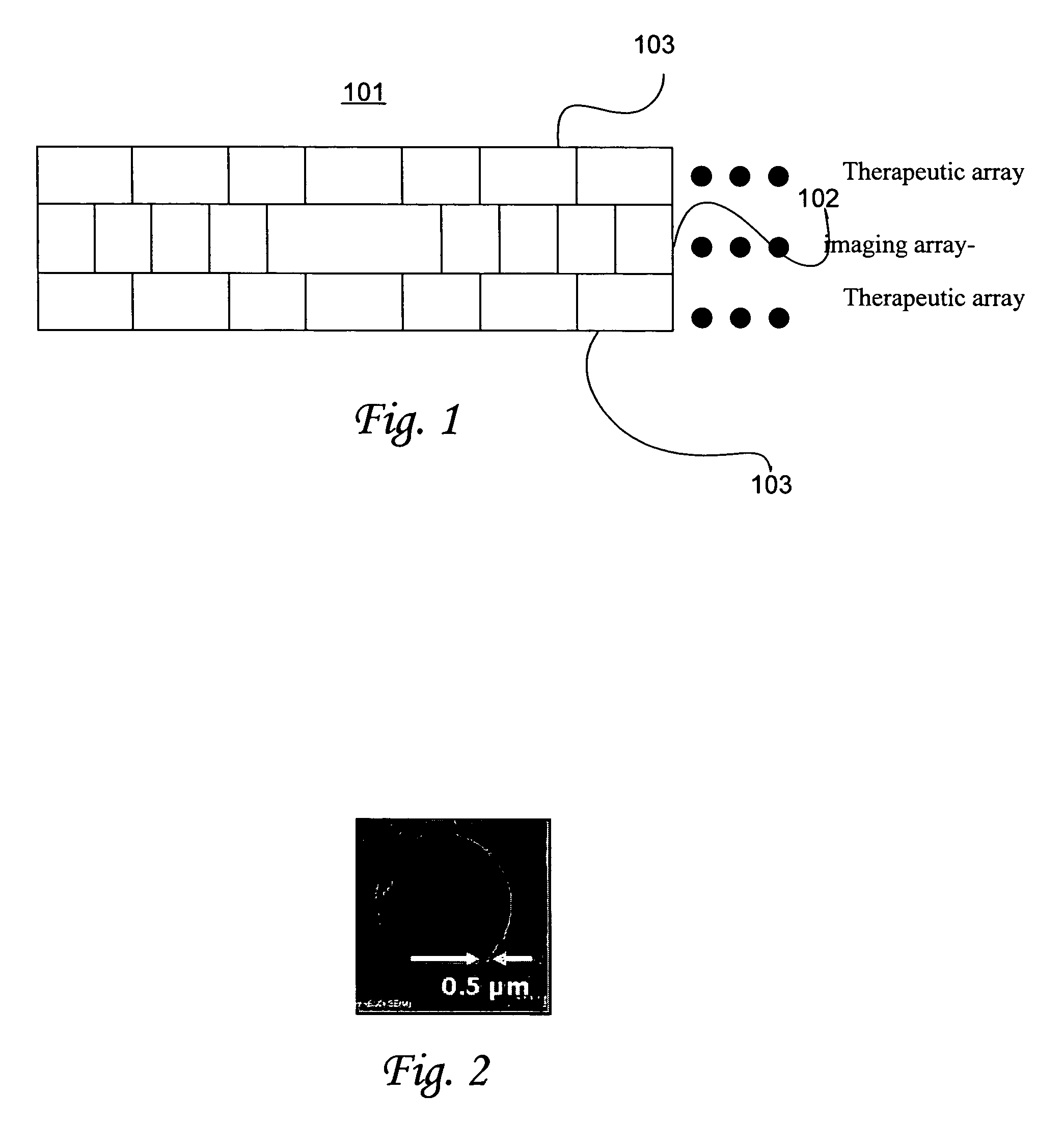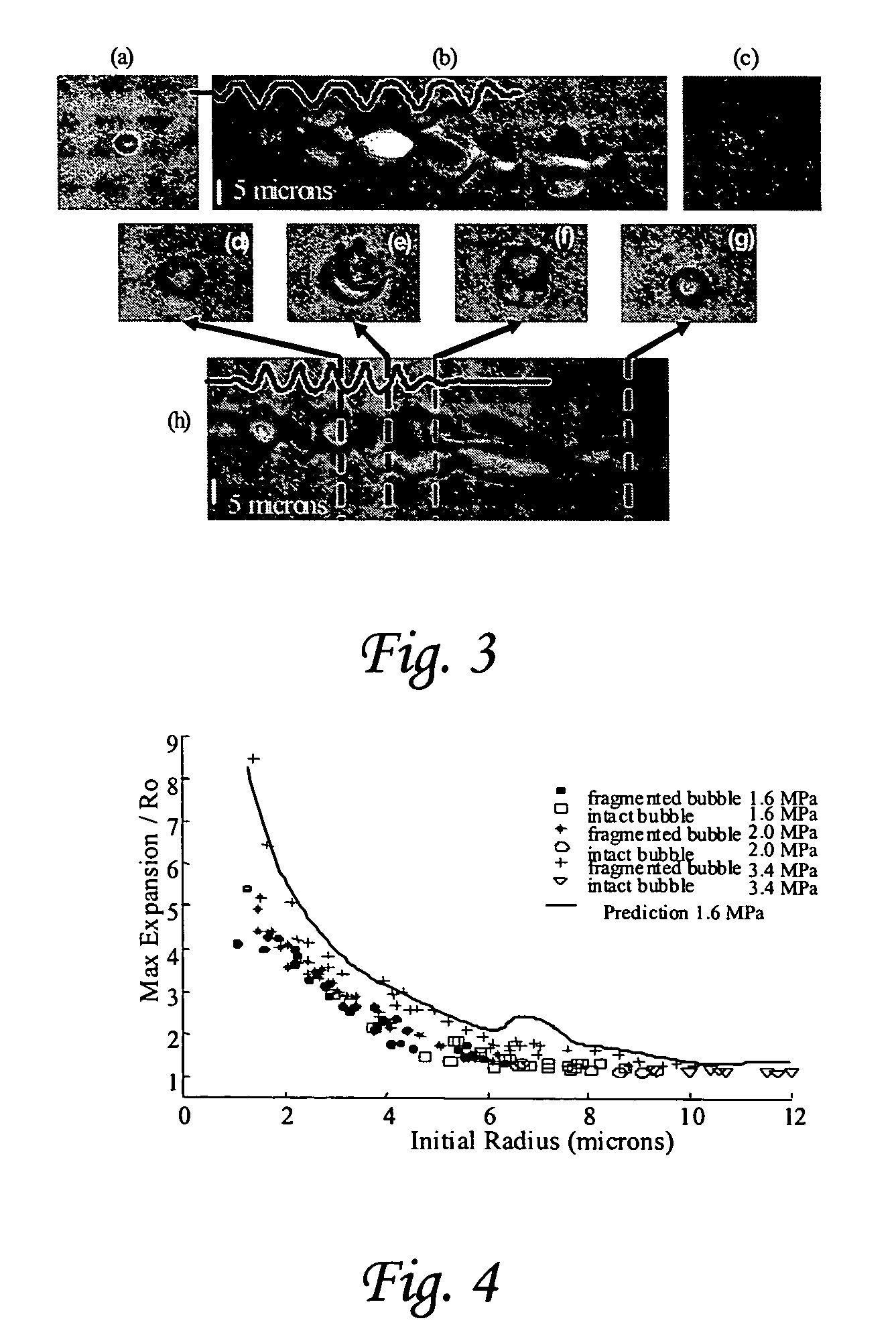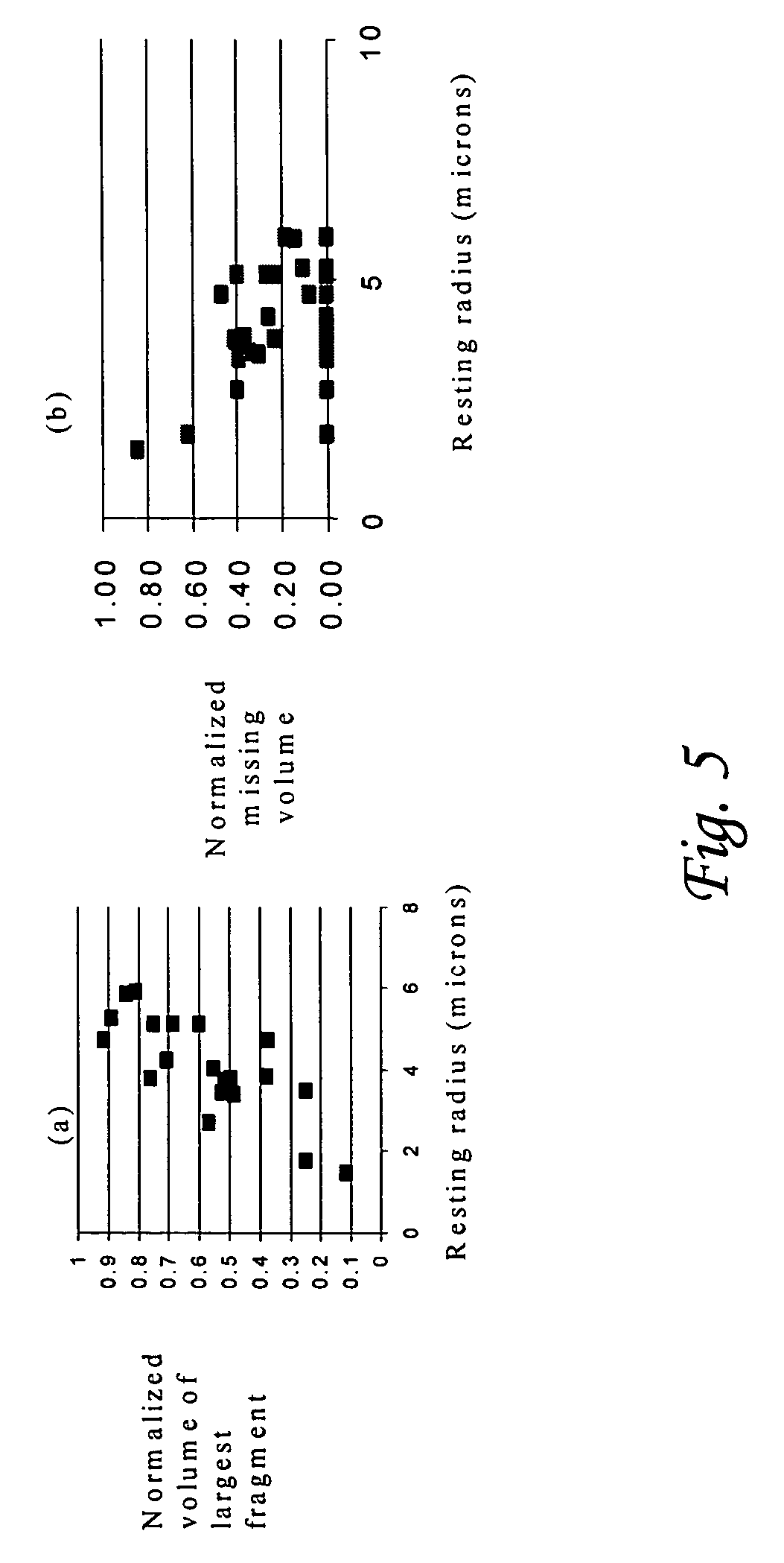Ultrasonic concentration of drug delivery capsules
a drug delivery and capsule technology, applied in the field of radiation force-targeted drug delivery capsules, can solve the problems of affecting the safety of patients, and damage to healthy tissues, etc., and achieve the effect of reducing the risk of cancer and affecting the survival rate of patients
- Summary
- Abstract
- Description
- Claims
- Application Information
AI Technical Summary
Benefits of technology
Problems solved by technology
Method used
Image
Examples
example 1
Oscillation of Contrast Agents and AALs Leading to Fragmentation and Radiation Forces
[0143]To improve the local delivery of a drug, it is important to deliver the agent to the vessel wall, to fragment the delivery vehicle into sub-micron particles, and separate the oil and drug components, if possible. The oscillation and fragmentation of the AALs are highly dependent on the viscosity of the oil, with triacetin observed to be particularly effective for acoustic excitation and fragmentation. Our results indicate that the number and size of fragments, as well as the mechanism of microbubble destruction, are dependent on the ultrasonic parameters (see, e.g., D. May, J. Allen, and K. W. Ferrara, (October 2002) (incorporated herein by reference in its entirety for all purposes)). In this example, we first review our models for the oscillation of contrast agents and AALs, as the solution of equations (1)-(3) is used to predict the time-dependent volume of the agent, and thus the radiation...
example 2
In vivo Studies with AALs
[0155]Lipospheres containing paclitaxel in soybean oil have been studied for concentration, size, acute toxicity in mice, and acoustic activity and drug release with ultrasound. E C Unger, T P McCreery, et al. Invest Radiol. 33(12):886-892 (Dec. 1998) (the entire disclosure of which is hereby incorporated by reference in its entirety for all purposes). We have shown that the substantially lower viscosity of triacetin greatly improves the oscillation, radiation force susceptibility, and fragmentation potential of AALs at low acoustic pressures (D. May, J. Allen, and K. W. Ferrara, IEEE Transactions on UFFC, 49(10):1400-1410 (October 2002); J. Allen, D. May and K W Ferrara, Ultrasound in Medicine and Biology, 28(6):805-816 (July 2002)), but the data in Unger, et al. (December 1988) demonstrate the in vivo proof of concept and low toxicity. Additional acute toxicity studies with AALs containing triacetin are underway, however many other low-viscosity oils may b...
example 3
Effect of Radiation Force on Microbubble Agents (Contrast and AAL)
[0157]The effect of acoustic radiation force on contrast agents and AALs has been studied in detail. P. Dayton, K. Morgan, IEEE Transactions on Ultrasonics, Ferroelectrics, and Frequency Control, 44(6): 1264-1277 (1997); P. Dayton, “The effects of acoustic radiation force on contrast agents: experimental and theoretical analysis,” Ph.D. Dissertation, University of Virginia, August 2001; Paul A. Dayton, John S. Allen, Kathy W. Ferrara, J. Acoust. Soc. Am., 112(5): 2183-2192 (November 2002); 2183-2192; P. Dayton, A Klibanov, G. Brandenburger, K. Ferrara, Ultrasound and Medicine and Biology, 25(8):1195-1201 (1999) (the entire disclosures of which are hereby incorporated by reference in their entirety for all purposes). For small, highly compressible objects, such as contrast agents and AALs, we have demonstrated that the radiation force, produced by insonation with a pressure of 100 kHz, and duty cycle a depicts a stream...
PUM
| Property | Measurement | Unit |
|---|---|---|
| pressure | aaaaa | aaaaa |
| center frequency | aaaaa | aaaaa |
| pressure | aaaaa | aaaaa |
Abstract
Description
Claims
Application Information
 Login to View More
Login to View More - R&D
- Intellectual Property
- Life Sciences
- Materials
- Tech Scout
- Unparalleled Data Quality
- Higher Quality Content
- 60% Fewer Hallucinations
Browse by: Latest US Patents, China's latest patents, Technical Efficacy Thesaurus, Application Domain, Technology Topic, Popular Technical Reports.
© 2025 PatSnap. All rights reserved.Legal|Privacy policy|Modern Slavery Act Transparency Statement|Sitemap|About US| Contact US: help@patsnap.com



